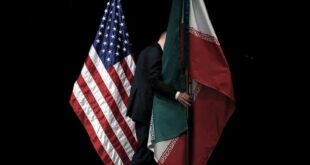 TEHRAN (FNA)- Iranian Interior Minister Ali Kordan said on Thursday that Tehran opposes any document that threatens Iraqi interests, in an apparent reference to a draft Washington-Baghdad security pact.
TEHRAN (FNA)- Iranian Interior Minister Ali Kordan said on Thursday that Tehran opposes any document that threatens Iraqi interests, in an apparent reference to a draft Washington-Baghdad security pact.
“Iran opposes any document that goes against the will of Iraqis and their leadership,” Kordan told a meeting in Jordan of interior ministers of Iraq’s neighbors.
“Iran opposes any document that would threaten Iraq’s interests.”
He did not elaborate, but was apparently referring to a draft security accord on the long-term presence of American troops in Iraq beyond 2008.
The US is in talks with Iraqi officials to get them to sign a provocative security agreement which secures long-term US presence in Iraq.
If ratified by the Iraqi government, the Status of Forces Agreements (SOFA) would also grant US forces in Iraq immunity from prosecution.
It also gives the occupation forces a free rein to stage military operations wherever and whenever they deem necessary, without consulting the Iraqi government.
Tehran is concerned that the yet-not-concluded security deal could lead to establishment of permanent US bases in the neighboring country.
“We believe that the Iraqi people must remain strong enough to take their own decisions in line with their interests. Iran will support any document that is accepted by the Iraqis,” Kordan said.
“The American troops must leave Iraq unconditionally and in accordance with a timetable,” he added.
Iranian President Mahmoud Ahmadinejad said on Thursday the pact seeks to keep Iraq weak to help America “pillage” the country.
The proposed pact is also facing widespread opposition among Iraqi people and politicians.
Many fear Washington has plans to keep permanent bases, despite a denial of any such plan written into the proposal. Iraqis say the drafts submitted by the Americans thus far would infringe on Iraq’s sovereignty by giving US forces too much freedom to operate.
The security pact also faces strong criticism from members of al-Maliki’s own coalition. Two Iraqi officials familiar with the negotiations have warned that a deal is unlikely to be reached before the end of President Bush’s term in January unless Washington backs off some demands seen as giving American forces too much freedom to operate in Iraq and infringing on Iraqi sovereignty.
Iraq’s parliament must approve the deal, and the two officials said opposition in the legislature was so widespread that it stood no chance of winning approval without significant changes in the US position.
Iraq’s cabinet decided on Tuesday to seek certain revisions to the accord, triggering warnings from top US military and political figures about the risks of not agreeing a deal.
“Any decision about the accord on the presence of US troops in Iraq will be a purely Iraqi decision,” Iraqi Interior Minister Jawad Bolani told reporters before the meeting.
The interior ministers of Iran, Iraq, Jordan, Kuwait, Saudi Arabia, Syria and Turkey held closed-door talks on boosting the exchange of intelligence information as well as cooperating on border controls and fighting extremism.
Bolani also said “security cooperation and coordination between Iraq and its neighbors has become better.”
A closing statement said Iraq and its neighbors agreed to “work together to enhance Iraq’s security, stability and unity” and “stressed the need to fight terrorism.
“All necessary measures should be taken to tighten border controls and prevent terrorists from using the territories of Iraq and neighboring states for any activities related to terrorism,” it said.
 Eurasia Press & News
Eurasia Press & News

